Today, September 17, marks the fourteenth anniversary of the repose of His Grace Bishop Basil Rodzianko of the Orthodox Church in America (OCA)’s Diocese of San Francisco and the West. Friends and family of the late bishop will gather early before work for a morning Liturgy commemorating him at his small apartment here in Washington. His Beatitude Metropolitan Jonah, the former Primate of the OCA, has often celebrated weekday Liturgies here.
Fourteen years ago, His Grace peacefully reposed in this studio apartment, a cozy place practically overflowing with books, icons, religious items, and thousands of tape cassettes of his broadcasts. His Beatitude Metropolitan Jonah will celebrate the commemorative Liturgy this morning in the apartment’s beautiful little chapel.
After his death, the group set to organizing and making available to the public many of Bishop Basil’s incredible sermons, brilliant audio recordings and wide-ranging thoughts on many topics, including Orthodox asceticism, contemplative prayer, the Liturgy, Church history, spiritual reflection, contemporary issues, and Church life. One intriguing and comprehensive result of their collaborative efforts is this beautiful web page. Included on this website is a remarkable and compelling account of Bishop Basil’s fascinating life.
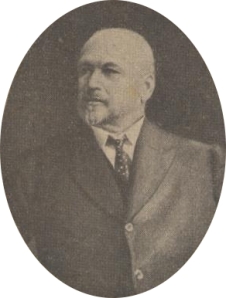
Growing up in Belgrade, young Vladimir was blessed to receive a superb spiritual education from two of the shining luminaries of twentieth century Orthodoxy: his beloved mentors were the young professor and hieromonk Fr. John Maximovitch, the future St John the Wonderworker, Archbishop of San Francisco, and Metropolitan Anthony (Khrapovitsky) of Kiev, who would become the first ruling Hierarch of the Russian Church Abroad. After attending a prestigious gymnasium, Vladimir attained his undergraduate theology degree at the University of Belgrade in 1937 and in that year married Mariya Kolubayeva.
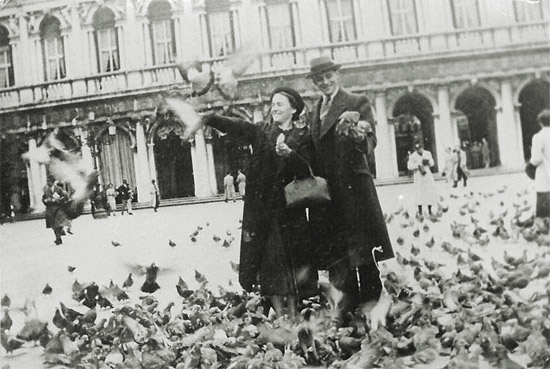
Vladimir continued his post-graduate work at Oxford and the University of London before returning to Serbia, where he was ordained a deacon in 1939 and then a priest in 1940. After the Second World War, during which he and his parishioners experienced numerous privations and abuses at the hands of the Nazis, he was sentenced to eight years’ hard labor by the communist authorities for spreading “religious propaganda”.
Following his release in 1949, due in considerable part to the intercession of the Archbishop of Canterbury Geoffrey Fisher, Fr. Vladimir and his family initially moved in exile to France before settling in the United Kingdom, where he continued serving Russian emigres as a priest in London under the Serbian Patriarchate. Always fascinated with radio technology, he began broadcasting religious programs to the faithful in the Soviet Union on the BBC. Due to the popularity of these programs, the Soviet KGB targeted Fr. Vladimir for assassination, and tragically, one of his grandsons was murdered by communist agents seeking to kill him.
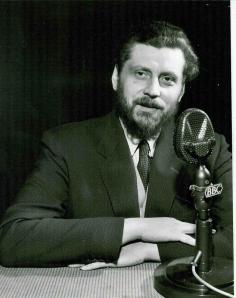
Fr. Vladimir lectured widely on Orthodoxy at leading British religious and academic institutions, serving as an active and leading member of the Fellowship of St Alban and St Sergius, a prominent Anglican-Orthodox ecumenical society established in 1928. Following the tragic death of his wife Marya in 1978 and a period of intense spiritual and personal struggle, Fr. Vladimir was tonsured as a monk the next year by his spiritual mentor, Russian Orthodox Metropolitan Anthony (Bloom) of Sourozh, taking the name Basil.
In 1980, with Metropolitan Anthony’s blessing, Hieromonk Basil was received into the Orthodox Church in America (OCA) from the Moscow Patriarchate and consecrated as auxiliary bishop in Washington, D.C. to the OCA’s Primate, Metropolitan Theodosius. In November of the same year Bishop Basil was consecrated as Bishop of San Francisco and the West, a diocese he served until his retirement in 1984.
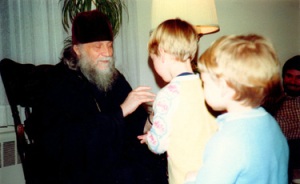
Following his retirement, Bishop Basil spent the closing years of his life in Washington, often serving at St Nicholas Cathedral, where my godmother met him and became his spiritual daughter. Following the end of communist rule in the Soviet Union, the bishop was at last free to travel to his Russian homeland and meet with many of the adoring and pious people who had come to love his radio broadcasts on all aspects of Orthodox spirituality, which he had given without interruption over four decades since leaving Serbia for the United Kingdom.
Bishop Basil continued giving regular Russian-language radio broadcasts until the end of his life. Several recordings of sermons he gave in English at St. Nicholas Cathedral have been carefully preserved.
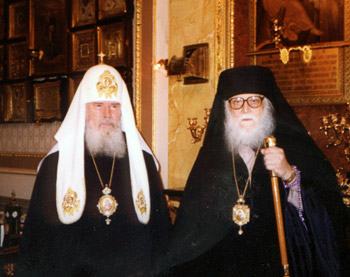
In May 1991 His Holiness Patriarch Aleksey II of Russia asked Bishop Basil to journey to Jerusalem and bring back to Russia some of the fire which miraculously ignites each Pascha at the tomb of Christ in the Holy Sepulchre. En route to Moscow, Bishop Basil met the HAH Ecumenical Patriarch Demetrios, Archbishop of Constantinople and New Rome at the Phanar in Istanbul and received his blessing. Upon arriving at the Kremlin’s Uspensky Sobor (Dormition Cathedral) as the choir and bishops began singing the ancient hymn “O Come, let us worship”, His Grace placed the sacred fire on the altar Divine Liturgy with Patriarch Aleksey. Following the Liturgy he then processed with the Patriarch and senior bishops of the Moscow Patriarchate around Moscow.
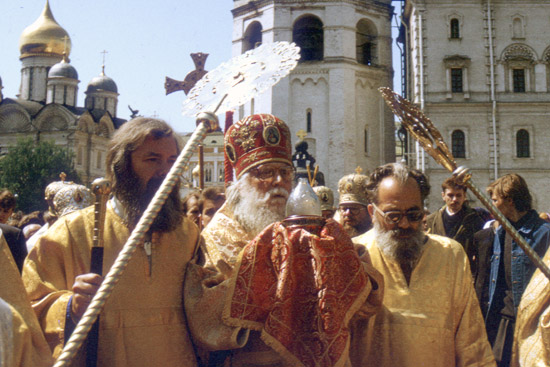
My godmother, whom Bishop Basil as a newly consecrated bishop received into the Church, maintains the small apartment where he lived after his retirement, including the tiny, beautiful chapel where he often celebrated the divine services. While I never knew Bishop Basil in his earthly life, as many of my older friends from St Nicholas Cathedral did, I have been blessed to hear and read so much of his life that I feel I have come to know him in many ways. This article is one small attempt I have made to describe, in my own words, the extraordinary breadth and impact of his long life.
Metropolitan Jonah has spoken movingly of his vivid memories of Bishop Basil, including in this video which includes his sermon at the Liturgy commemorating His Grace on the tenth anniversary of his repose in 2009 at St Nicholas Cathedral, the OCA’s primatial cathedral here in DC. As my godmother recorded in this article featured on the Cathedral website, His Beatitude observed about Bishop Basil that
“Ten years ago he died and was buried – and yet he is alive in our midst. . . His presence is powerful and the grace of the Holy Spirit allows us to perceive that presence – that grace that came forth from him during his life through his prayers and the grace which comes forth from him now through his prayers”.
These words embody the very fullness of our intentions when we say, in reference to our departed loved ones, “Memory eternal!” / “Вечная память!” For Bishop Basil, however, the extraordinary holiness and depth of faithfulness which permeated his life call to mind another aspect of our references to our beloved ancestors and forerunners who have reposed in the Lord. These words come from the very prayers offered at the commemorative Liturgies held in their memory:
“Among the spirits of therighteous perfected in faith, give rest, O Savior, to the soul of Your servant. . .”
“The righteous perfected in faith”. Many have spoken to me of the deep veneration and love they have for Bishop Basil, and, although the Orthodox Church has yet to formally canonize him as a saint, many ordinary faithful already honor him as such. What is beyond doubt is that, in his vocation as a bishop, Bishop Basil touched the lives of thousands of the faithful with his glowing countenance, demeanor, and kindness of spirit.

My godmother has recounted to me that, on Bishop Basil’s many visits to Russia (trips on which she often accompanied him), countless ordinary villagers upon first meeting him immediately discerned that he was a holy man. Russian babushki in particular would exclaim, upon encountering him, “He is with the angels!”. Most of us can only ponder what it means to be in the presence of a living saint! I count the testimonies of those who knew Bishop Basil, especially those who were very close to him, as invaluable in preserving for the rest of us an account of this man’s extraordinary life and the path to holiness which he followed in his later years.
Bishop Basil spent the last fifteen years of his life serving at St Nicholas Cathedral at a time of tremendous growth in parish life, serving as the beloved spiritual father to many in the parish. As a retired bishop, after 1984 he concentrated his efforts on his radio broadcasts to the faithful living under state oppression in the Soviet Union. My godmother and many others who knew him and frequently traveled with him in Russia have recounted that these broadcasts played a major role in the reemergence of Orthodoxy in Russian spiritual and public life following the collapse of the Communist regime.

I count it among the greatest of blessings in my life that I have been able to attend these intimate Liturgies at the chapel where Bishop Basil so often served in his latter years, in the apartment where he lived and reposed. I have felt his calming, healing presence permeating the room and softening the hearts and countenances of all present.
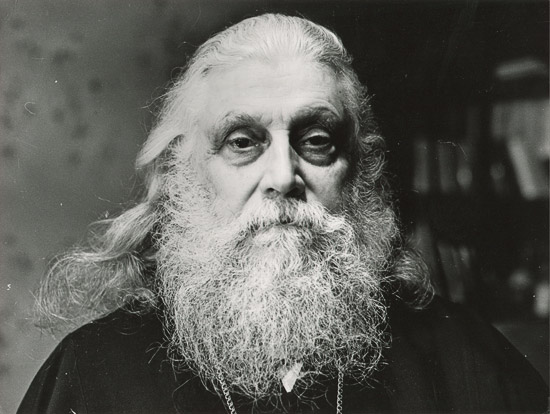
To give you just one small sense of the extraordinary holiness and grace which sanctified and transformed this man’s life as a bishop, here is one quote from a veritable library of sermons, addresses, and special messages he recorded, which are continually being transferred to more updated electronic media files:
“When Christ promised his disciples that the Spirit of God, His Holy Spirit, would descend upon them, He called Him the Comforter. To be in the Spirit promised by Christ is to be comforted, consoled. One need not fear any kind of sorrow or surrounding evil or inner affliction when there is such consolation. But in order to come to this consolation, it is necessary to understand in the depth of one’s soul that any sorrow, any suffering, any affliction is a consequence of sin – either one’s own or another’s. And if you accept everything as your own sin, if you identify yourself with the whole of sinful humanity and understand the fall and that you deprived yourself of Paradise, the Kingdom of Heaven – first of all, you yourself – then tears of repentance will flow at once and with them, all encompassing consolation. Such a person (who has come to such repentance) becomes meek, filled with an inner calm, silence and peace. Only in such a condition is it possible to subdue surrounding evil, win people over and win over the world. ‘Acquire the spirit of peace and thousands around you will be saved’ said St. Seraphim of Sarov.”
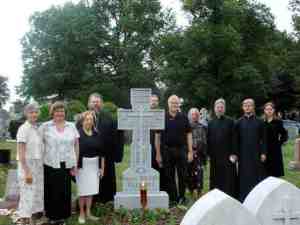
Knowledge of Bishop Basil’s extraordinary life has been widely popularized in Russia in a chapter titled “His Eminence the Novice” in Archimandrite Fr. Tikhon Shevkunov’s bestselling book Everyday Saints. It is my hope that Bishop Basil’s legacy will continue to live on in the stories of all who knew him, and, through their efforts, that more and more Americans come to know of this extraordinary servant of God. May his memory be eternal!
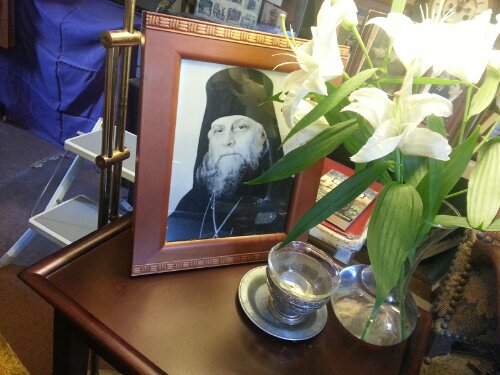
No comments yet
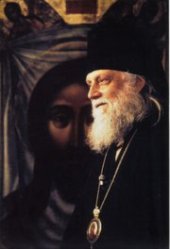
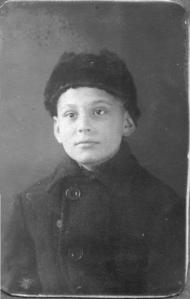

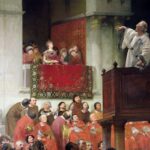

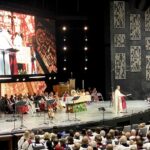
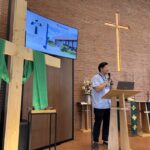
Leave a Reply